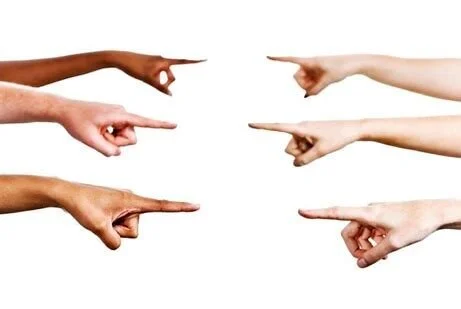Once there lived a happy and congenial couple who had been married for decades. As the years passed, the husband became concerned that his wife was not hearing as well as she used to. He thought that she might need a hearing aid; but, he wasn’t sure how to approach her.
He called their family doctor and asked for a suggestion. The doctor told him to try a simple test. He said, “Stand 40 feet away from her and speak as loud as you would speak to her in a normal conversation. Observe if she hears you. If not, reduce the distance to 30 feet, then 20 feet, and so on until you get a response. The distance will help us to estimate her possible need for a hearing aid.”
Next day, the husband saw his chance to check on her hearing using the doctor’s idea. His wife was cooking dinner in the kitchen. He stood 40 feet away from his wife and asked, “Dear, what is there for dinner?” He waited for a response, but did not get any.
He moved a bit closer and asked again, “Dear, what is there for dinner?” He still did not get any response from his wife.
He then stood twenty feet away from her and asked the same question, hoping that surely he would get a response this time. But, the wife did not respond.
He then stood just ten feet away from her and asked, “Dear, what is there for dinner?” Again, he still did not get any response.
By now the husband was very concerned and felt sorry for his wife and how bad her hearing seemed to be.
Then he walked right behind her and said, “ Honey, what is there for dinner?“
The wife turned around, shouting as loud as she could, “John, this is the fifth time I’m saying—CHICKEN!!”
- Author Unknown
********
Not hearing correctly, or more often, not taking the time to listen to someone else may also result in mis-interpretation of the intended communication. Such a resulting problem may not be the fault of others, but could be something going on inside us.
Often this may take the course of putting blame on someone or something else for events that happen.
For example:
* A worker cuts off his finger while slicing salami at work, and blames the faulty equipment.
* Someone smokes three packs of cigarettes a day for forty years, and then blames the tobacco company for the resulting lung cancer.
* The kids misbehave/lack manners, parents blame television, cell-phones, etc.
Blaming others for your own misfortunes—whether it is another person or an external circumstance—is an easy way to outsource unwanted responsibility.
People tend to play the blame game when they can’t see a better solution to a problem or can’t handle a personally distressing situation. The game has been played forever. (Even Eve passed the buck in the Garden of Eden…see below).
When you blame something or someone else, in effect it actually means you expect something or somebody else to change your life situation. It means you are waiting for the other person or thing to redeem you from your problems. It isn't their life though—-it's your life. Everything you have in your life is an expression or demonstration of how you treat yourself, NOT how somebody else treated you or what somebody else has done.
“It is wise to direct your anger towards problems - not people; to focus your energies on answers - not excuses.” - William Arthur Ward.
********
The man said, “The woman whom you gave to be with me, she gave me fruit of the tree, and I ate.” Then the Lord God said to the woman, “What is this that you have done?” The woman said, “The serpent deceived me, and I ate.” Genesis 3:12-13 ESV
Hypocrite! First get rid of the log in your own eye; then you will see well enough to deal with the speck in your friend’s eye. Matthew 7:5 NLT
*******************************************
If you liked this story and would like a copy of either of my books,
they are available on Amazon in both paperback and Kindle format:
If you have a story or testimony that you think might bless others,
I invite you to send it by email to me (Kenneth Kersey) at godsotherways@me.com.
*******************************************

